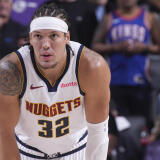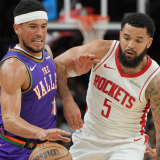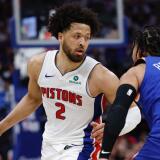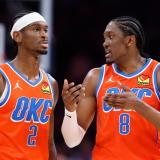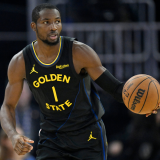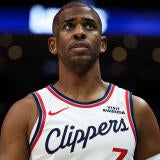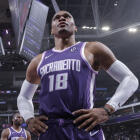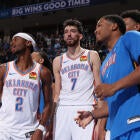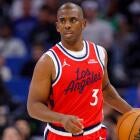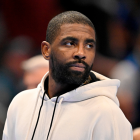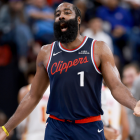NBA All-Quarter Century Defensive Teams: Picking the 21st century's best defenders at each position
Kobe Bryant, Andre Iguodala and Rudy Gobert were among those who missed out on spots
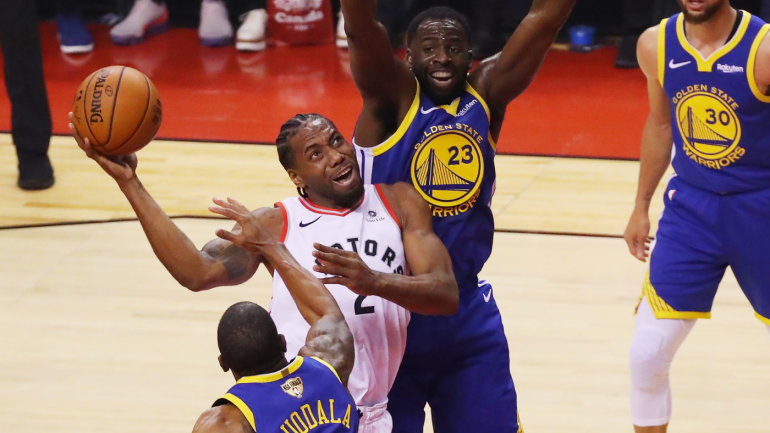
We're looking back on the last 25 years of NBA basketball over the next two weeks with our NBA All-Quarter Century project. Monday morning we published our All-Quarter Century Teams, picking the three best players at every position from the 21st century (so far). The biggest names (like LeBron James, Stephen Curry, Kobe Bryant, Tim Duncan) were represented.
We'll also be doing a top-25 player list and All-Quarter Century awards later this week. But before that, we want to recognize the best defenders of the last two-and-a-half decades. Below are CBS Sports' two All Defensive teams for the 21st century. Our panel of experts voted on the two best defenders at each position.
All-Quarter Century Defensive First Team
- PG: Jrue Holiday
- SG: Tony Allen
- SF: Kawhi Leonard
- PF: Tim Duncan
- C: Ben Wallace
We had just one unanimous First Team All-Defense pick. The lucky winner? Jrue Holiday, who was the fairly clear selection as our point guard -- even if it took him a while to get the appreciation he deserved. Holiday didn't make his first All-Defensive Team until his ninth season, but he's made it five more times since. Starting his career on bad teams hurt, but he's more than made up for that with two championship runs in his 30s. His lockdown performance on Devin Booker might have swung the 2021 Finals, but his best work came in 2018, when he held peak Damian Lillard to just 18.5 points per game on 35.2% shooting in a four-game sweep by the Pelicans over the Blazers. Holiday was simultaneously the league's best point-of-attack defender and a capable switcher. He's guarded Stephen Curry and he's guarded Kevin Durant. He's a perfect defensive guard.
Kawhi Leonard, the only perimeter player to win multiple Defensive Player of the Year awards this century, ran away with our small forward slot. Regardless of time period, Leonard has a strong case as the greatest perimeter defender in NBA history. He was so good that offenses were willing to play 4-on-4 just to avoid him. His giant hands and long arms make him a threat to deflect just about any pass, and no wing has ever been scarier to opposing ball-handlers. Nothing I can write will do Leonard greater justice than LeBron James' reaction when he realized Leonard was checking back into a Finals game to guard him.
Rounding out our perimeter group is the Grindfather, Tony Allen. He never made an All-Defensive team in Boston, but that was largely because he didn't play enough. He played seven seasons as a member of the Grizzlies. In the six of them in which he missed 24 or fewer games, he was an All-Defense selection. Aside from setting the tone for one of the century's best defenses, Allen's defense was so good that he inadvertently created one of the modern NBA's most common defensive tactics. In a 2015 series against Golden State, Allen disrupted the Warriors so much that Steve Kerr took a gamble by defending him with his center, Andrew Bogut, in an effort to play him off of the floor. The strategy worked, and now, defenders like Allen who struggle to shoot frequently get schemed out of games this same way. His offensive weaknesses may have made the strategy possible, but remember, the Warriors needed to reinvent NBA defense just to solve their Tony Allen problem. He was that good.
Center theoretically should have been the hardest position to solve. Of the 26 Defensive Player of the Year trophies handed out this century, 17 have gone to centers. Of those 17 trophies, 11 have been divided among just three bigs: Ben Wallace, Dwight Howard and Rudy Gobert. Those three centers split all of the votes here, but Wallace ultimately won out. It's somewhat ironic. At a position filled with enormous rim-protectors. Wallace succeeded despite being severely undersized as a center. It didn't matter. He was a brick wall, completely immovable, yet just as capable of jumping out onto the perimeter when needed. He was the anchor for one of the greatest defenses of all time, the 2004 Pistons. That championship run culminated with Wallace holding Shaquille O'Neal to just 26.6 points per game in the Finals. That might not sound great ... until you remember that in O'Neal's three previous Finals appearances as a Laker, he averaged 38, 33 and 34 points per game. Not bad for an undrafted free agent.
Like our All-Century teams, we come up against a power forward log jam. Two of our key figures here haven't changed: Duncan and Garnett. But joining the fray in place of Nowitzki and Antetokounmpo is Draymond Green. And, in one of the great ironies of this list, our winner was Duncan, who somehow never won Defensive Player of the Year. In fact, he was never even the runner-up. But he was chosen to an All-Defensive Team in each of his first 13 seasons, and he saved his best work for the playoffs. He once blocked eight shots in a championship-clinching victory over the Nets in 2002, and while San Antonio would eventually reinvent itself as a fast-paced, pass-heavy offensive team, the bulk of its dynasty was defined by the defense that Duncan led. Remember how O'Neal averaged at least 33 points per game in each of those Lakers Finals victories? He faced Duncan in 25 playoff games as a Laker and reached that 33-point figure just twice. There was no greater honor for a big man in the early 2000s than holding your own against Shaq, and Duncan, like Wallace, certainly did so.
All-Quarter Century Defensive Second Team
- PG: Jason Kidd
- SG: Bruce Bowen
- SF: LeBron James
- PF: Draymond Green
- C: Dwight Howard
There wasn't a single unanimous Second-Team selection for our All-Defensive Teams. Point guard came down to two stalwarts: Jason Kidd and Chris Paul. They're tied for the most All-Defense selections for a point guard with nine. Paul has led the NBA in steals six times, but Kidd had one major advantage: size. Paul is six-feet flat. Kidd was listed at 6-foot-4. Paul held up on switches far better than most players of his height, but that extra size and length just gave Kidd a bit more defensive versatility.
Shooting guard came down to a positional designation debate. Bruce Bowen could plausibly have counted as either a shooting guard or a small forward. He made All-Defensive teams at both positions. Basketball Reference lists small forward as his most commonly played position, but remember, since Manu Ginobili mostly came off of the bench, San Antonio mixed a wide variety of starters alongside Bowen and Tony Parker. Nailing down a single slot for Bowen became difficult. Ultimately, the old axiom that a player's position is determined by who he defends applies here. Bowen was who the Spurs threw at the NBA's best guards during their dynasty years, so shooting guard won out. That costs Kobe Bryant, the all-time leader in All-Defense selections for a guard with 12, his slot in the back court. Also receiving interest? Alex Caruso, who arguably peaks higher than either Bowen or Bryant, but just doesn't play enough minutes to convince voters he's worthy of a list like this.
The irony of our small forward debate is that it came down to a player (LeBron James) competing with someone whose most notable defensive achievement was guarding him. Andre Iguodala was a stellar defender for his entire career, but when you hear his name, you think of two things: winning a Finals MVP for defending James, and then James getting revenge a year later with his career-defining chase down block in Game 7.
That play exemplifies LeBron's place on this list. On a night-to-night basis over the course of their careers, Iguodala was probably a better defender. He was certainly more consistent. But James had a defensive ceiling as high as any wing in league history, and it culminated with that block, arguably the greatest defensive play in NBA history. No player has ever combined his level of athleticism with his basketball IQ, so even if he took a fair number of regular-season nights off defensively as he got older, he was capable of getting to a level defensively that Iguodala, and most other players, simply couldn't access. If you want to see what truly flawless defense looks like, do yourself a favor and go rewatch the fourth quarters of the 2011 Eastern Conference Finals. In the last four games -- all Heat wins -- James guarded Derrick Rose, who stole his MVP award, and held him to 4-of-20 shooting.
The separator between Howard and Gobert at center? The postseason. It's not entirely fair, mind you. The perimeter defenders Gobert had in front of him in Utah put him in an impossible position, and his own much-maligned perimeter defense is sorely underrated if you give even a cursory look at the data. But Howard's playoff résumé lacks the defining, negative moments that, in the eyes of many, define Gobert's. Howard's defense took a team to the Finals. He played a much smaller role for the Lakers in their 2020 championship run, but his defense on Nikola Jokić was downright remarkable. Remember, Gobert faced him two rounds earlier in the Orlando bubble and got torched. Maybe Gobert will one day have that crowning postseason moment, but until then, Howard seemingly holds the edge.
We close with an enormously difficult power forward decision. Garnett laid the groundwork for Green in just about every way. He proved capable of defending the perimeter. Green made it his calling card, and in the process, did more to change the way defense is played in the modern NBA than any other player. They are both well-known trash-talkers. Garnett is bigger, but Green has never struggled to defend anyone because of his size. Green won more, but just imagine how many titles Garnett would have if he'd spent his entire career with a teammate like Curry.
And yet again, like our All-Quarter Century Third Team, Garnett loses out. It turns out, being part of a dynasty has its privileges when it comes to lists like this. Curry's shooting may be what fans think of first when they look back on that dynasty, but the Warriors finished either first or second in defense in three of their four championship seasons. They won on both ends of the floor, and in many ways, Green is to their defense what Curry is to their offense. Both systems work because of a one-of-a-kind player unlocking schematic possibilities that would otherwise be impractical. Garnett probably could have done the same for a similarly historic team. He just didn't get the chance.


